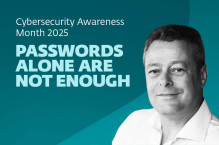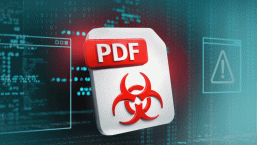According to the Navy Times today, the Cyber Command is up.
“The nascent command charged with operating the nation’s military computer networks is now a reality, the Pentagon has confirmed.”
“U.S. Cyber Command, a subordinate unit of U.S. Strategic Command, was launched Friday afternoon at Fort Meade, Md., in a status officials called an initial operating capability. The command is expected to be fully operational by October, according to Air Force Lt. Col. Rene White.
“Cyber Command will “direct the operations and defense of specified Department of Defense information networks and prepare to, when directed, conduct full-spectrum military cyberspace operations in order to enable actions in all domains, ensure U.S./allied freedom of action in cyberspace and deny the same to our adversaries,” according to a fact sheet released Friday by the Pentagon.”
Cyberwarfare to be treated like better than Hurricane Katrina?
From Aviation Week:
“Former CIA director, James Woolsey, Jr., predicts the U.S. military cyberforces will be pulled into managing cyber-attack-triggered catastrophes just as they support large-scale natural disasters.
“It is not a Defense Department obligation to protect the national power grid,” Woolsey says. “The problem is that nobody is responsible, at least nobody that is doing anything effective. We have an infrastructure that is privately owned and resists government regulation even on matters of security and safety. I wager as the vulnerabilities of the grid [to cyber-attack] become more apparent . . . there will be pressure in one way or another for the military to protect the power grid.”
Analysis: Some truth
CIA Director Woolsey isn’t far off.
- When bad things happen to infrastructure the military gets called in. The relevant historical reference that comes to mind immediately is the Air Traffic Controller Strike of 1981 as well as the Coal Strike of 1902 in which then-President T. Roosevelt stated “National Government represents . . . the interests of the public as a whole."
- With the surge in trained military cybersecurity professionals now enlisted, any specific critical infrastructure sector could expect federalization faster than you could say ‘FEMA’.
- I will tell you this, the wages for enlisted specialists are markedly different than IT specialists meaning that if they did federalize the security for critical infrastructure it may stay that way for a long time.
Is that really a bad thing? Is that a good thing? I’m undecided right now and would love your (and my fellow ESET bloggers) opinions.
Securing Our eCity Contributing Writer
Related Articles:
- I-95 Cybersecurity corridor expected to blossom? – Federal News
- US airforce shifts 30000 troops to 'cyberwar front lines'? – The Register
- Army To Establish Cyber Command HQ? – The New New Internet
- DoD Cyber Command is officially online - Navy Times
- From Megatons to Megapings: Cyberwarfare – ESET ThreatBlog Feature
- Cyberwarfare and Music: It’s All Tempo – ESET ThreatBlog Feature
- Cybercrime and Cyberwarfare: Warnings Unheeded? – ESET ThreatBlog Feature
- Kinetic Warfare vs. Cyberwarfare – ESET ThreatBlog Feature




